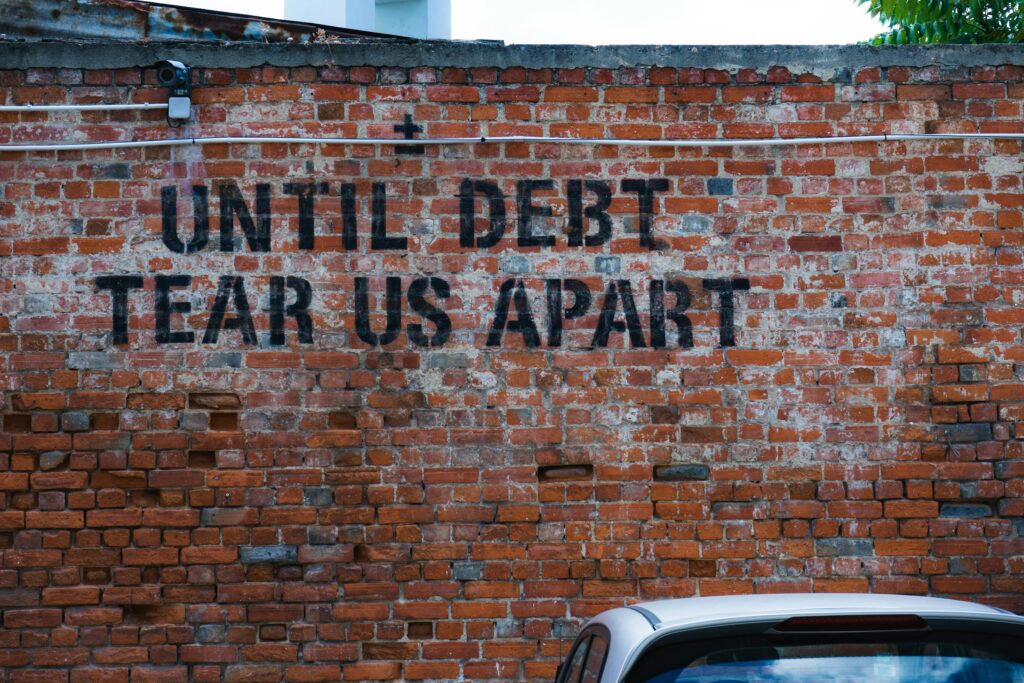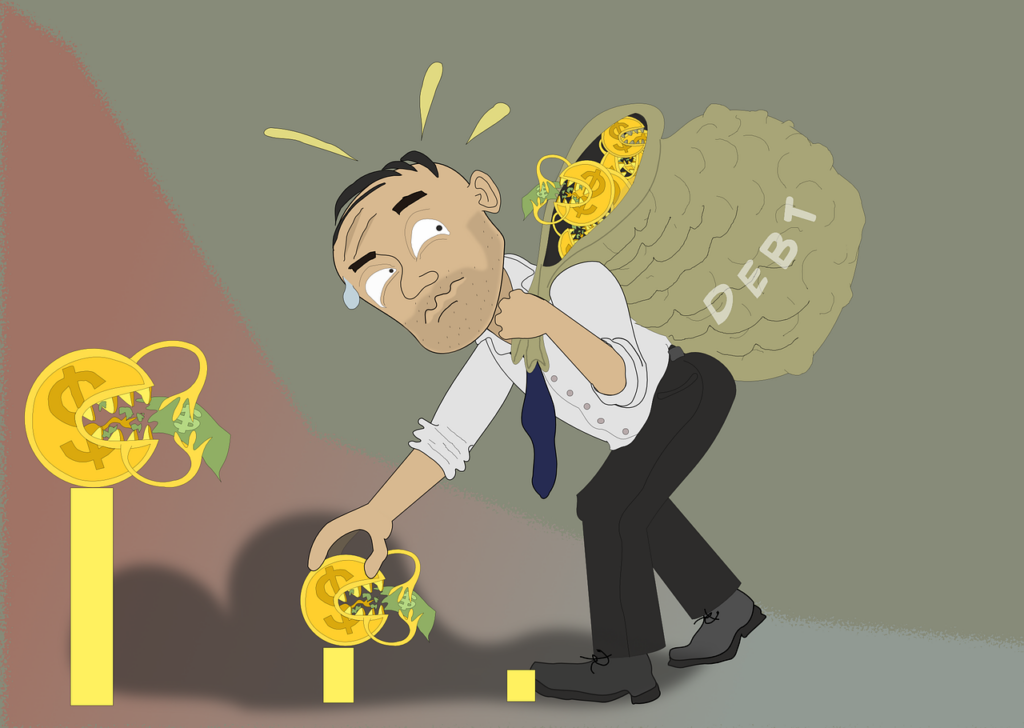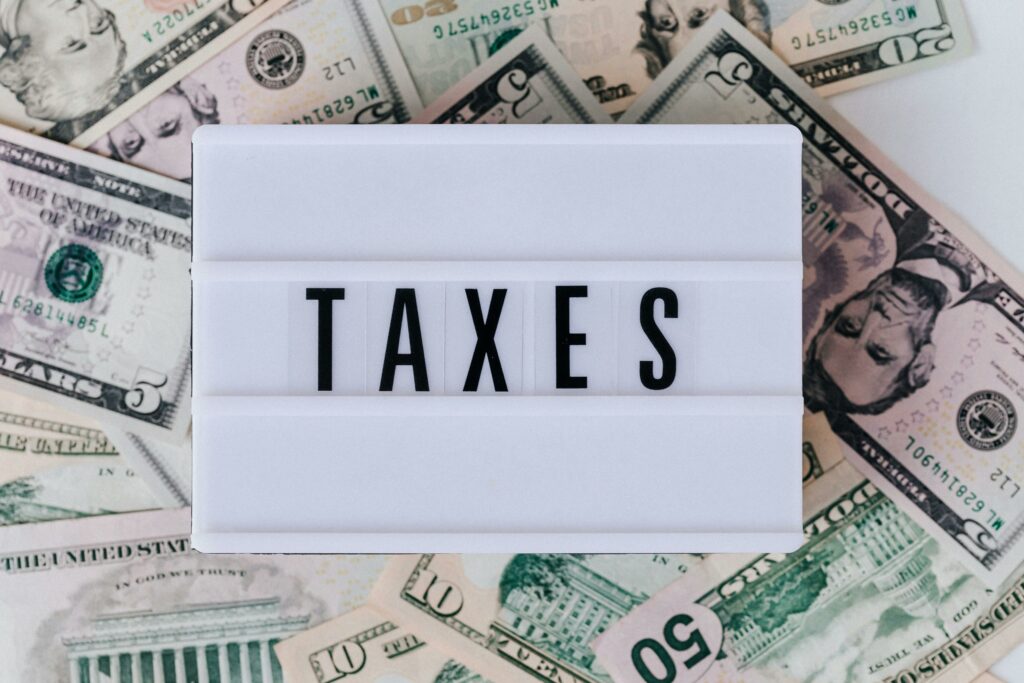Love our content? Show your support by following us — pretty please!🥺
FOLLOW ON PINTEREST
Hi! I’m Kate, the face behind KateFi.com—a blog all about making life easier and more affordable.
When you’re struggling with overwhelming debt, finding the right strategy to regain control of your finances can be daunting. Two popular solutions are debt consolidation and debt settlement. But which one truly saves you more money in the long run? In this comprehensive guide, we’ll break down both strategies, compare their benefits and drawbacks, and explain why partnering with a trusted expert like CuraDebt can be a game changer on your path to financial freedom.
🚀 Ready to lower your monthly payments and save on interest?
Discover CuraDebt’s Expert Debt Consolidation Services Today! 🚀
Table of Contents
- Understanding the Basics
- How Debt Consolidation Works
- How Debt Settlement Works
- Comparing the Two Strategies
- Real-Life Examples and Case Studies
- Why Choose CuraDebt for Debt Consolidation
- Frequently Asked Questions
- Conclusion: Which One Saves You More?
- Additional Resources & Internal Links
Understanding the Basics
When dealing with debt, it’s important to understand the options available so you can make an informed decision.
What is Debt Consolidation?
Debt consolidation is the process of combining multiple debts into one single loan, ideally at a lower interest rate. This strategy simplifies your monthly payments, reduces interest charges, and can help you pay off your debt faster.
Key Features of Debt Consolidation:
- Single Monthly Payment: Instead of managing multiple payments, you only have one to worry about.
- Lower Interest Rates: Often, the consolidated loan comes with a lower interest rate than your existing debts.
- Improved Cash Flow: A lower interest rate and streamlined payment process can free up more cash each month.
- Predictability: With a fixed payment plan, you have a clear roadmap toward becoming debt-free.
For a more detailed look into budgeting and expense management, check out our 5-Minute Budget Hacks for Busy Moms.
What is Debt Settlement?
Debt settlement, on the other hand, involves negotiating with your creditors to accept a lump-sum payment that is less than the full amount you owe. This strategy can significantly reduce your overall debt burden, but it comes with its own set of challenges.
Key Features of Debt Settlement:
- Negotiated Reduction: Creditors agree to forgive a portion of your debt.
- Potential Credit Impact: The process can negatively affect your credit score, as you’re typically required to stop making payments during negotiations.
- Uncertainty: There’s no guarantee that creditors will agree to your terms, and the process may take time.
- Fees and Costs: Debt settlement companies may charge significant fees, which can offset some of the savings.
Understanding these basics will help you weigh the pros and cons of each approach.
👉 Not sure which strategy is right for you?
Let CuraDebt’s Experts Guide Your Decision! 👈
How Debt Consolidation Works
Debt consolidation is designed to simplify your financial obligations by merging various debts into one. Here’s how it typically works:
💡 Follow KateFi.com on Pinterest for:
- Frugal living hacks
- Budget-friendly meal ideas
- Creative side hustle tips
- DIY tricks that save you money
- Assessment of Debts:
You start by listing all your debts, including balances, interest rates, and monthly payments. This gives you a clear picture of your financial situation. - Finding a Consolidation Loan:
The next step is to secure a consolidation loan that ideally offers a lower interest rate than your current debts. Many reputable financial institutions and specialized companies provide these loans. - Paying Off Existing Debts:
Once you secure the consolidation loan, the funds are used to pay off your existing debts. This leaves you with one loan to manage. - Fixed Payment Plan:
You then repay the consolidation loan over a set period with a fixed monthly payment. This plan often makes it easier to budget and manage your finances. - Potential for Savings:
By lowering your interest rate and simplifying payments, debt consolidation can save you money over the life of the loan, reduce your overall debt faster, and improve your financial stability.
Benefits of Debt Consolidation
- Simplicity: One payment is easier to manage than multiple bills.
- Lower Interest Costs: A reduced interest rate means more of your payment goes toward the principal.
- Improved Credit Management: Consistent, on-time payments can gradually improve your credit score over time.
🚀 Ready to simplify your debt?
Explore Debt Consolidation with CuraDebt Now! 🚀
How Debt Settlement Works
Debt settlement is a more aggressive approach that involves negotiating with creditors to accept a lower payment than what is owed. Here’s a breakdown of the process:
- Financial Assessment:
You begin by assessing your total debt, income, and expenses. This helps you determine what you can realistically offer as a lump-sum settlement. - Negotiation Process:
Debt settlement companies or financial advisors negotiate directly with your creditors. The goal is to reach an agreement where the creditor agrees to accept a reduced amount as full payment of your debt. - Lump-Sum Payment:
Once an agreement is reached, you make a single lump-sum payment or a series of payments as per the negotiated terms. This finalizes the settlement. - Debt Forgiveness:
Creditors forgive the remaining balance of the debt, effectively reducing your overall debt burden.
Drawbacks of Debt Settlement
- Credit Score Impact:
Since debt settlement often requires you to stop making payments during negotiations, it can lead to late payments being reported, which negatively affects your credit score. - Uncertain Outcomes:
There is no guarantee that creditors will agree to settle, and the process can be lengthy and stressful. - Fees and Costs:
Professional debt settlement companies typically charge fees, which may be a percentage of the debt or a flat rate. These fees can reduce your net savings. - Tax Implications:
Forgiven debt may be considered taxable income, leading to unexpected tax bills.
👉 Considering debt settlement?
Get Professional Guidance from CuraDebt! 👈
Comparing the Two Strategies
Both debt consolidation and debt settlement offer pathways to reduce your debt—but which one saves you more in the long run? Let’s compare them across several key factors.
Interest Rates and Fees
| Factor | Debt Consolidation | Debt Settlement |
|---|---|---|
| Interest Rates | Typically offers a lower, fixed interest rate | No interest rate, but settlement amounts are lower than the original debt |
| Fees | May include origination or processing fees (often minimal) | Settlement companies may charge high fees (percentage-based or flat fees) |
| Overall Savings | Reduces interest costs over time, saving money on total repayment | Can significantly reduce principal, but fees and tax implications may diminish net savings |
Analysis:
Debt consolidation generally saves you money by lowering your interest rate and streamlining payments. Debt settlement might reduce your overall debt quickly, but the fees, potential tax consequences, and impact on your credit score can reduce your net savings.
Impact on Credit Score
| Factor | Debt Consolidation | Debt Settlement |
|---|---|---|
| Credit Reporting | Generally reported as a new loan; on-time payments can improve your score over time | May negatively affect your score due to missed payments and settled debts |
| Long-Term Effects | Can lead to gradual credit score improvement | Often results in a lower credit score for several years |
Analysis:
Debt consolidation tends to have a more favorable impact on your credit score compared to debt settlement, which often results in a temporary or long-term credit downgrade.
Payment Terms and Flexibility
| Factor | Debt Consolidation | Debt Settlement |
|---|---|---|
| Monthly Payment | Fixed monthly payment; predictable budgeting | Lump-sum or irregular payment structure |
| Payment Flexibility | Offers flexibility through refinanced terms | Negotiated settlements may have rigid terms |
| Budgeting | Simplifies budgeting with one payment | Can complicate budgeting due to irregular payment schedules |
Analysis:
Debt consolidation provides more predictable and manageable monthly payments, making it easier to integrate into your budgeting process.
Long-Term Financial Implications
| Factor | Debt Consolidation | Debt Settlement |
|---|---|---|
| Overall Cost | Lower overall cost through reduced interest payments | Savings may be offset by fees and potential tax liabilities |
| Future Borrowing | Improves credit over time, aiding future borrowing | May hinder future borrowing due to a lower credit score |
| Financial Stability | Encourages disciplined repayment and budgeting | Often a short-term solution; may not address underlying spending habits |
Analysis:
In the long run, debt consolidation is often the more stable and cost-effective approach, promoting financial discipline and improving your credit profile, which is essential for future financial opportunities.
🚀 Want to see which option is right for you?
Let CuraDebt Help You Evaluate Your Options! 🚀
Real-Life Examples and Case Studies
Case Study 1: Sarah’s Success with Debt Consolidation
Sarah had multiple credit card debts and a personal loan with varying interest rates. By consolidating her debts into a single loan at a lower interest rate through CuraDebt, she simplified her payments and reduced her monthly interest charges by nearly 30%. Within 18 months, Sarah noticed a significant improvement in her financial situation and even began rebuilding her credit score.
Case Study 2: Mark’s Experience with Debt Settlement
Mark chose debt settlement after facing unmanageable credit card debt. While he was able to negotiate settlements that reduced his total debt by 40%, the process took longer than expected, and his credit score suffered as a result. Additionally, Mark had to pay high fees to the debt settlement company, which reduced his overall savings. Despite the reduction in his debt balance, the long-term impact on his credit made it difficult for him to secure favorable loan terms in the future.
Case Study 3: Lisa’s Balanced Approach with Consolidation
Lisa was initially overwhelmed by her high-interest debts and considered debt settlement. After consulting with CuraDebt, she opted for debt consolidation instead. With a single, lower interest rate loan, Lisa managed to pay off her debt steadily without major disruptions to her credit. Over time, her improved credit score opened the door to better financial opportunities.
🔥 Inspired by these success stories?
Let CuraDebt Transform Your Financial Future! 🔥
Why Choose CuraDebt for Debt Consolidation
When it comes to saving money and streamlining your debt, CuraDebt stands out as a trusted partner. Here’s why:
Expert Guidance
CuraDebt’s team of professionals works with you to understand your unique financial situation. They help you:
- Evaluate all your debts.
- Find the best consolidation options.
- Negotiate favorable terms with your creditors.
Simplified Process
By consolidating multiple debts into one manageable loan, CuraDebt simplifies your repayment process. This means:
- One monthly payment instead of many.
- A clear repayment timeline.
- Reduced financial stress and improved budgeting.
Lower Interest Rates
CuraDebt often secures lower interest rates than what you’re currently paying. This reduction in interest can save you thousands of dollars over the life of your loan, allowing you to:
- Pay off your debt faster.
- Allocate more money toward savings and investments.
Proven Track Record
Thousands of individuals have successfully regained control of their finances with the help of CuraDebt. Their approach is backed by real-life success stories, and their methods have been proven to work for many who were once overwhelmed by debt.
🚀 Ready to simplify your debt and save money?
Experience the CuraDebt Advantage Now! 🚀
Frequently Asked Questions
Q1: What is the main difference between debt consolidation and debt settlement?
Answer:
Debt consolidation combines multiple debts into one single loan at a lower interest rate, simplifying your payments. Debt settlement involves negotiating with creditors to reduce your total debt, but it often comes with a negative impact on your credit score and additional fees.
Q2: Which option is better for long-term financial health?
Answer:
Debt consolidation generally offers more long-term benefits. It can improve your credit score, lower your overall interest costs, and streamline your monthly payments. Debt settlement might provide immediate relief but can hurt your credit score and affect your ability to borrow in the future.
Q3: How does debt consolidation affect my credit score?
Answer:
While applying for a consolidation loan might cause a temporary dip in your credit score, making consistent, on-time payments on your new loan can gradually improve your credit profile over time.
Q4: Are there any risks associated with debt settlement?
Answer:
Yes, debt settlement can negatively impact your credit score, lead to potential tax liabilities on forgiven debt, and involve high fees. It’s important to weigh these risks against the potential benefits before choosing this route.
Q5: Why should I choose CuraDebt for debt consolidation?
Answer:
CuraDebt offers expert guidance, a simplified consolidation process, and the ability to secure lower interest rates—all of which can save you money in the long run. Their proven track record and personalized approach make them a trusted partner in achieving debt freedom.
🚀 Still have questions?
Get Personalized Advice from CuraDebt Today! 🚀
Conclusion: Which One Saves You More?
After evaluating the pros and cons of both debt consolidation and debt settlement, it’s clear that debt consolidation tends to offer more savings in the long run. Here’s why:
- Lower Overall Costs:
Consolidation typically reduces the interest you pay, leading to significant savings over time. - Credit Score Improvement:
With regular, on-time payments on a consolidation loan, you’re likely to see an improvement in your credit score. - Simplicity and Predictability:
A single monthly payment makes budgeting easier and reduces financial stress. - Long-Term Financial Stability:
Consolidation not only addresses your current debt but also sets you up for better financial opportunities in the future.
Debt settlement may seem attractive for immediate relief, but the potential negative impact on your credit score, high fees, and tax implications can outweigh its short-term benefits.
👉 Ready to save money and simplify your debt?
Choose Debt Consolidation with CuraDebt and Start Your Journey Today! 👈
Additional Resources & Internal Links
For further insights into debt management and financial freedom, explore these valuable resources from KateFi:
- 5-Minute Budget Hacks for Busy Moms: Quick tips to streamline your budget and reduce unnecessary expenses.
- Debt Snowball vs. Debt Avalanche: Which One Works Better?: A detailed comparison to help you choose the right repayment strategy.
- Debt-Free in 365 Days: A Simple Plan to Crush Your Credit Card Balances: A roadmap for long-term debt relief.
- 10 Must-Have Tools to Simplify Your Financial Life: Essential tools for managing your money effectively.
- Success Stories: Meet the Women Who Transformed Their Lives Through KateFi: Real-life experiences to inspire and motivate you.
🔥 Empower your financial future with more great content from KateFi!
Explore Our Blog and Transform Your Money Management Skills Today! 🔥
Wrapping Up
Choosing the right debt management strategy is critical for saving money and achieving long-term financial stability. While debt settlement might provide quick fixes, debt consolidation—with its lower interest rates, predictable payments, and positive impact on your credit—emerges as the superior option for most individuals seeking to save more money and secure a brighter financial future.
By consolidating your debts into one manageable loan, you not only save on interest but also pave the way for a more disciplined financial lifestyle. And with the expert support of CuraDebt, you can navigate the consolidation process with confidence, knowing you have a trusted partner by your side.
🚀 Ready to simplify your debt and maximize your savings?
Get Started with CuraDebt Today and Transform Your Financial Future! 🚀
Remember, the journey to financial freedom starts with a single step. Make the smart choice—choose debt consolidation with CuraDebt and take control of your finances once and for all.
This post is part of our ongoing mission at KateFi to empower individuals with the knowledge and tools needed to achieve financial freedom. For more actionable advice and personalized strategies, subscribe to our newsletter and explore our blog for the latest insights and updates.
👉 Don’t wait—experience the CuraDebt advantage now!
Start Your Journey to Debt Freedom Today! 👈
By following this guide, you’ll have a clearer understanding of how debt consolidation and debt settlement work, the advantages and drawbacks of each, and why debt consolidation—especially when handled by experts like CuraDebt—saves you more money in the long run. Here’s to a future free from overwhelming debt and full of financial opportunity!






















